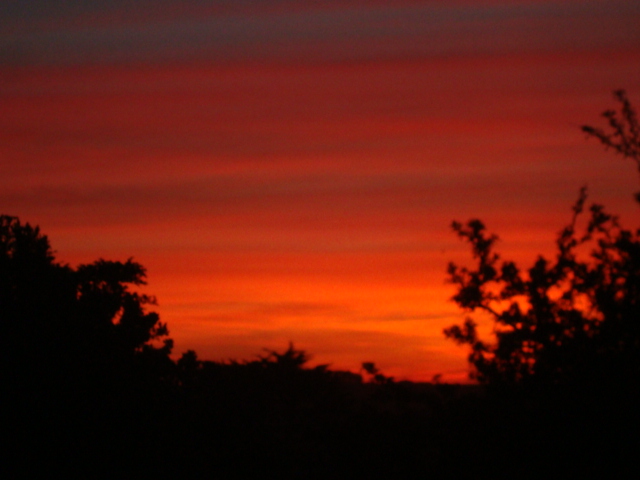Day Hundred and Seventy
Cansves
Dedh Deg ha Trei Ügens
De Merher,
ügensves mis Efan.
Wednesday, 20th
June.
Thera howlsedhes pur deg hanath. Rüdh spladn o an
ebron tûa an noor west. Martesen avorow a vedh jorna pur deg. Avorow a vedh
mantol hav, jorna an hirra an vledhen. (An nos-ma a vedh nos an cottha an
vledhen.) Avorow an howl a wra derevel pemp ar glogh, ha howlsedhes a vedh hanter
òja naw. E vedh dhe nei whetek our ha hanter (po nebes) a wolowder an howl. Ma’n
howl a vedh a-ûgh an Tropek a Ganker. Howldrevel ha howlsedhes ew an moy tûa
noor – nena anjei a wra moas tûa soth. An ger “solstice” en Sowsnek ew dhort an
ger Laten “solstitium” – ma’n howl o sevel heb movyans. En Kernôwek an howl ew
mantolys. En Kernow nei a wolya Golôwan (Gool Sen Jôwan Bejydhyer). Hen’ew pajwora
warn ügens mis Efan. Henwys ew hedna “cres an hav”.
There was a very beautiful sunset this evening. The
sky was bright red towards the northwest. Tomorrow will be the summer solstice,
the longest day of the year. (Tonight is the shortest night of the year.) Tomorrow
the sun will rise at five o’clock, and sunset will be half past nine. We will
have sixteen and a half hours (almost) of sunlight. The sun is overhead at the
Tropic of Cancer. Sunrise and sunset are the most northerly – then they will go
towards the south. The word “solstice” in English is from the Latin “solstitium”
– the sun stands still. In Cornish the sun is balanced. In Cornwall we
celebrate the Feast of St John the Baptist. That is on 24th June.
That is called “midsummer”.



Comments
Post a Comment